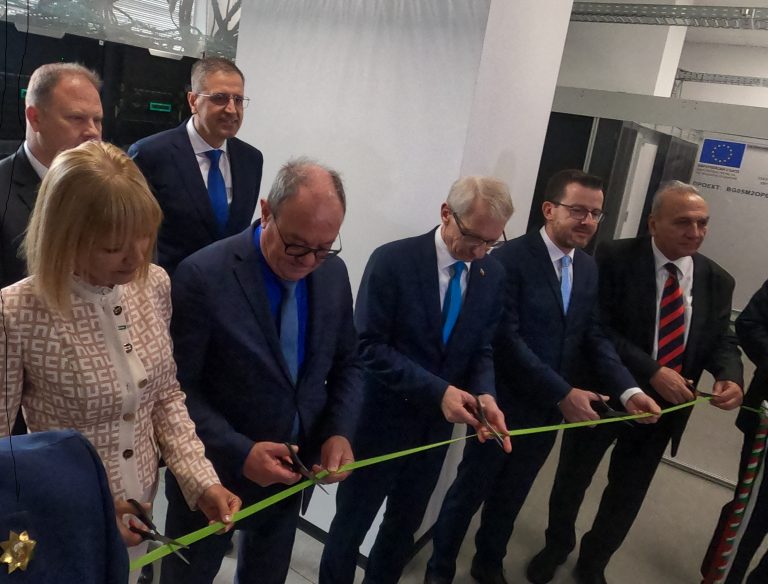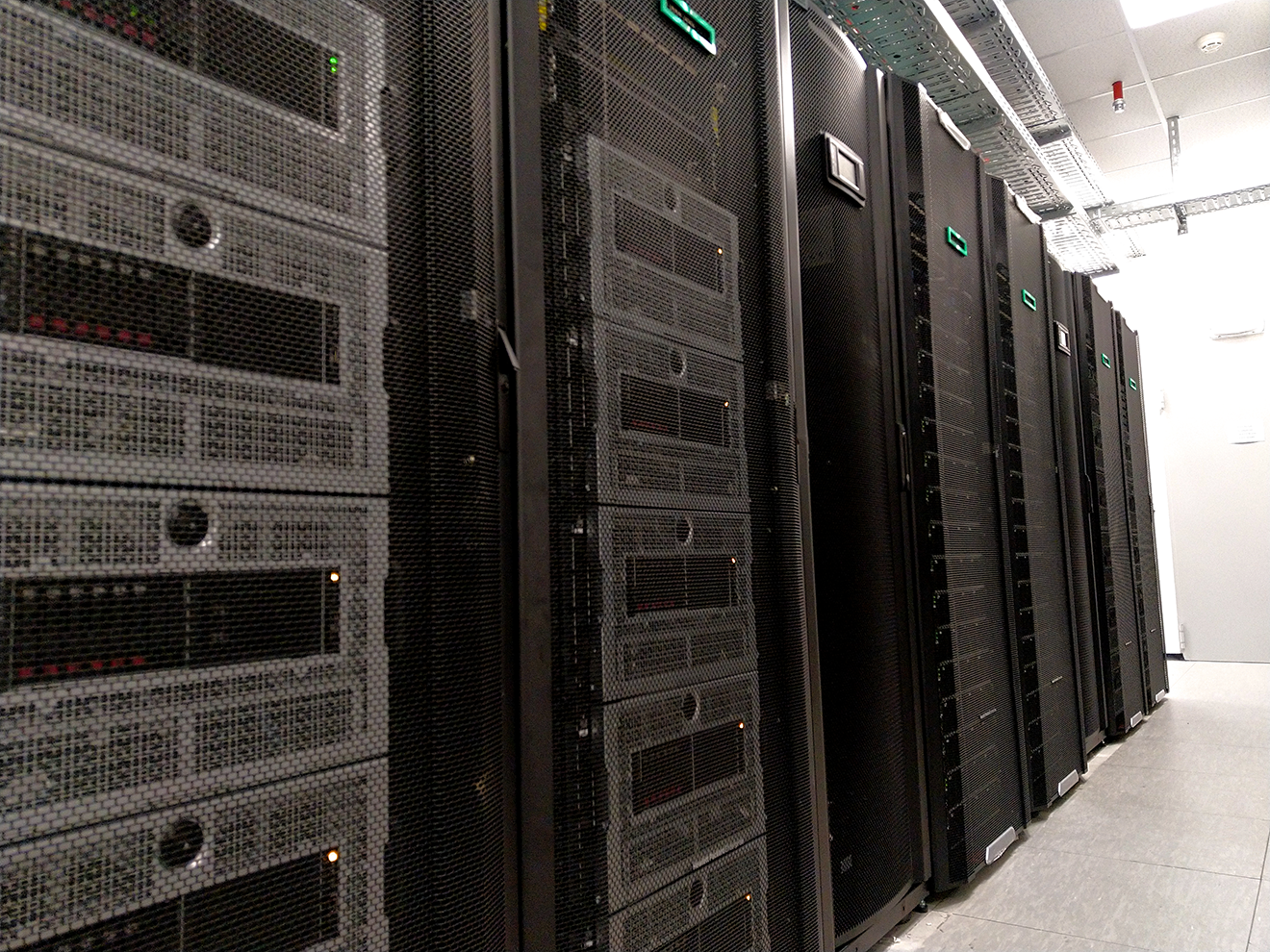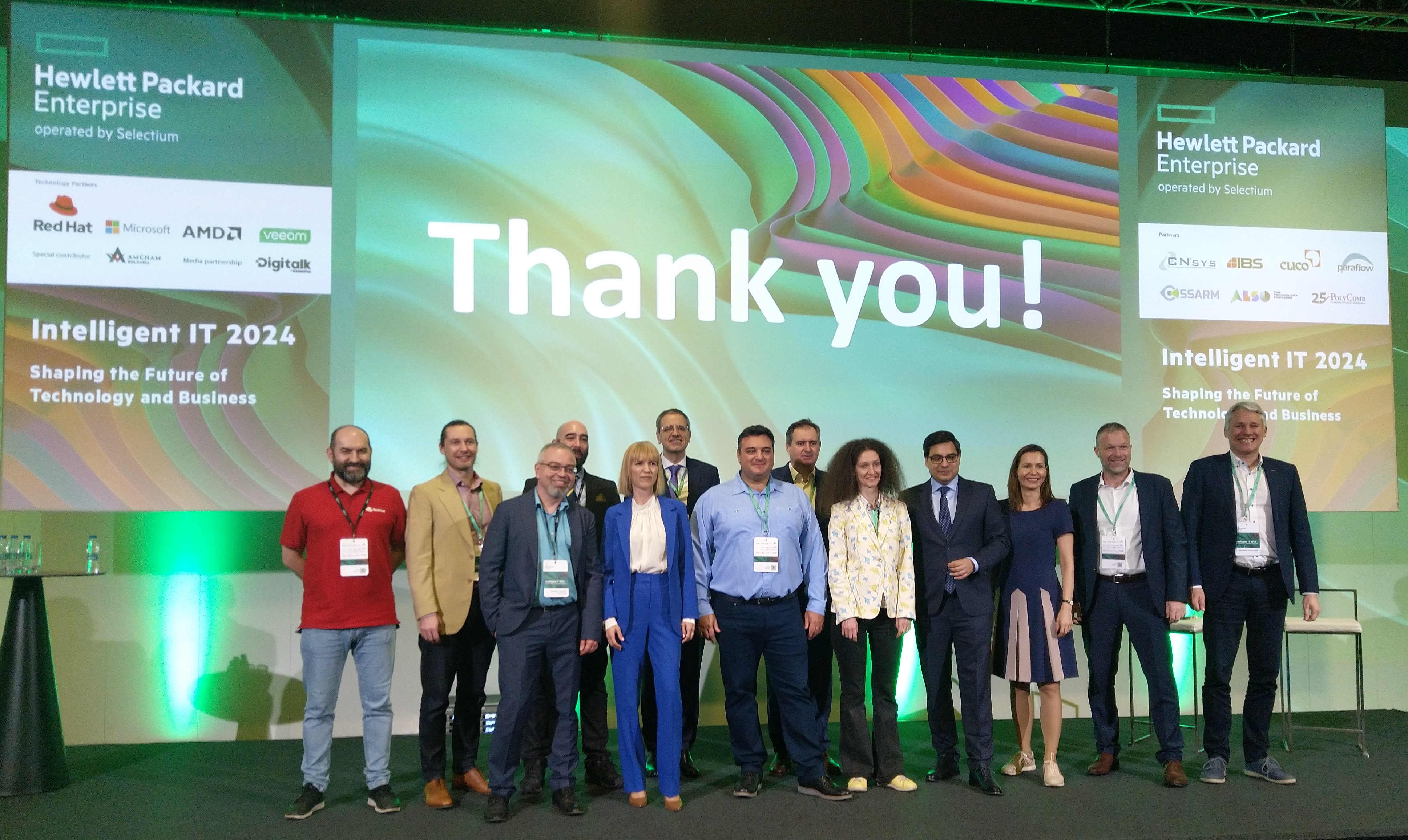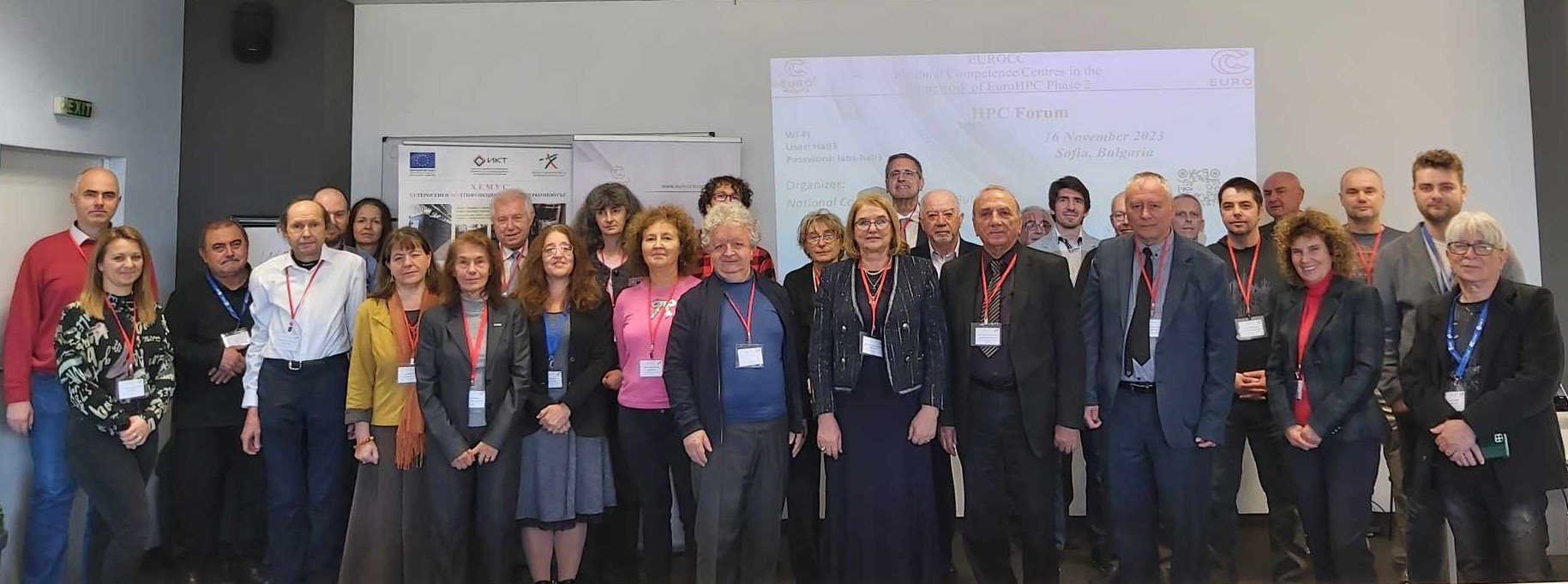In October 2023, the new petascale supercomputer HEMUS came into operation at IICT-BAS. The HEMUS supercomputer has a peak (theoretical) performance of over 3 PetaFlops, 148 servers (distributed in two subsystems) and non-blocking InfiniBand connectivity. The universal multi-core processor subsystem consists of 128 dual-processor HPE ProLiant XL220n Gen10 Plus servers with direct liquid cooling. The subsystem with universal multi-core processors and graphics accelerators consists of 20 HPE ProLiant XL675d dual-processor servers with direct liquid cooling of the CPUs and GPUs.

The system was ranked 360th in the November Top500 list of the most powerful supercomputers, after achieving a LINPACK performance of 2.53 PetaFlops on the standard High Performance Linpack (HPL) benchmark.
The supercomputer was deployed within the framework of the project Center of Excellence in Informatics and ICT, funded by the Operational Program “Science and Education for Smart Growth”. It is part of a new infrastructure complex for digital transformation and high performance computing with 4 main layers, including the HEMUS supercomputer, a data storage and processing system with a capacity of more than 6.72 petabytes, high performance server systems for application development and digitization facilities. For an efficient and convenient user experience all layers of the computing ecosystem are well integrated, including the network, computing resources and data, software, services and tools,.
Numerous tests, both global HPL-type and micro-benchmarks, were carried out, which helped to optimally configure the system and shape approaches for the most effective use of HEMUS’s capabilities in the migration and optimization of applications. Data storage systems with high capacity and performance, supporting a variety of protocols and options for working with containers, were installed and integrated with HEMUS, in order to give adequate support for I/O operations in data-intensive applications.
The first applications migrated to HEMUS are in the fields of artificial intelligence and climatology. A user training program was developed, including one-day (introductory) courses for new users as well as thematic consultations in various scientific fields.



